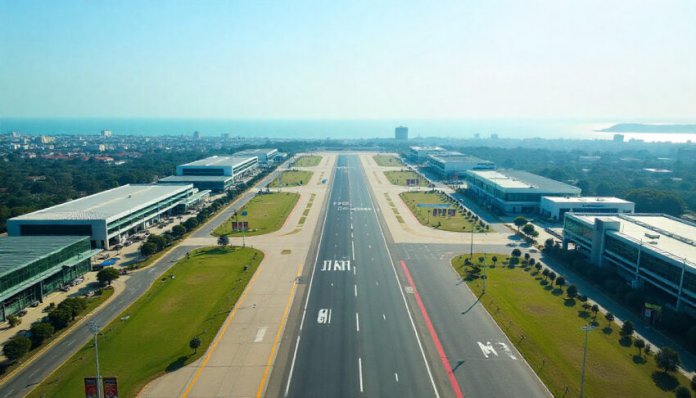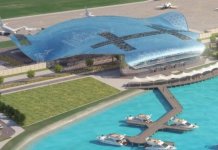On October 8, 2025, Prime Minister Narendra Modi inaugurated the Navi Mumbai International Airport (NMIA), marking a significant milestone in India’s aviation infrastructure. Built at a cost of ₹19,650 crore (approximately $2.2 billion) by the Adani Group in collaboration with the City and Industrial Development Corporation (CIDCO), this state-of-the-art facility is poised to become a major hub in Asia, rivaling global giants like Singapore Changi Airport.
Strategic Location and Design
Situated in Ulwe, Navi Mumbai, the airport spans 1,160 hectares and features a lotus-inspired architectural design by Zaha Hadid Architects. The first phase includes Terminal 1 and Runway 1, with the capacity to handle 20 million passengers annually. The terminal boasts 66 check-in counters, 22 self-baggage drop points, and 29 aerobridges, ensuring a seamless passenger experience.
Advanced Infrastructure and Sustainability
NMIA is India’s first fully digital airport, incorporating biometric e-gates, facial recognition boarding, smart baggage handling, and automated passenger processing. The airport is designed to be energy-efficient, with 47 MW of solar power meeting its energy needs, alongside electric-vehicle services and water-recycling systems.
Multimodal Connectivity
The airport is set to be India’s first with multimodal connectivity, including water taxis, high-speed rail, metro, and road networks. This integration aims to enhance accessibility and reduce travel time for passengers, positioning NMIA as a central node in the region’s transportation network.
Future Expansion Plans
The final phase of NMIA is expected to expand its capacity to 90 million passengers per annum (MPPA). The cargo terminal will also see significant growth, with an initial capacity of 0.8 million tonnes annually, expanding to 3.2 million tonnes in later phases.
Conclusion
The inauguration of Navi Mumbai International Airport signifies India’s commitment to enhancing its aviation infrastructure and global connectivity. With its advanced facilities, sustainable design, and strategic location, NMIA is set to play a pivotal role in shaping the future of air travel in Asia.












